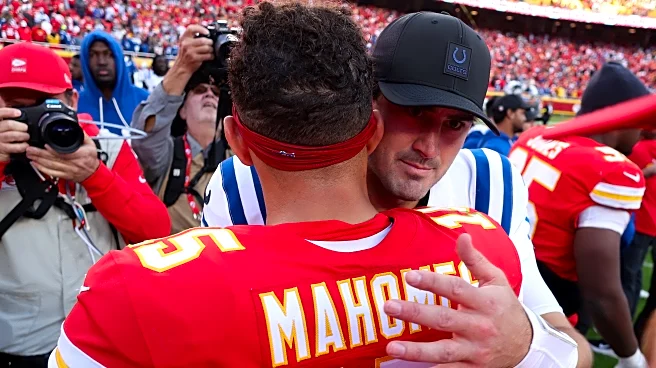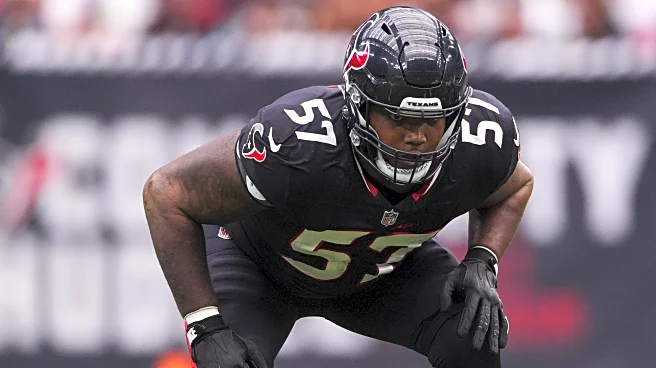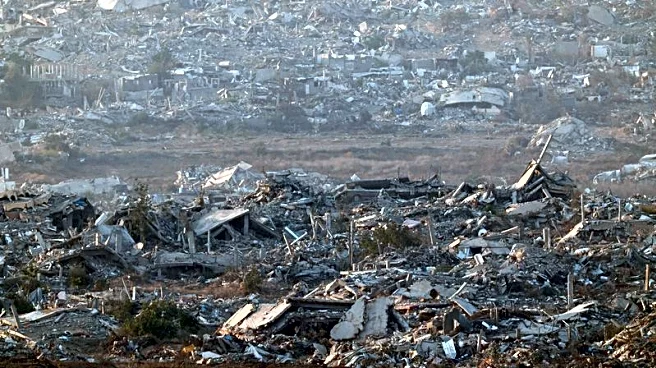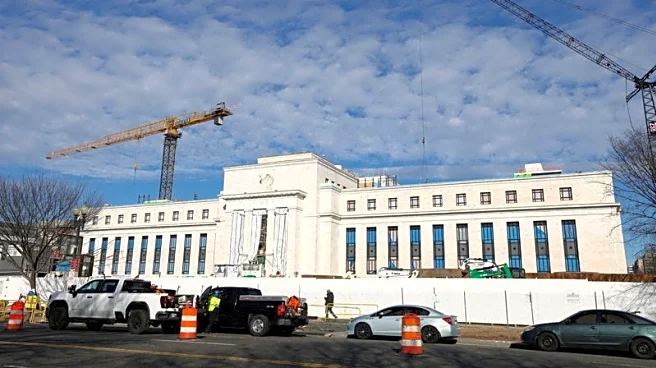What's Happening?
At COP30 in Belem, Brazil, negotiators are under pressure to address the future of fossil fuels, including oil, coal, and natural gas. The Brazilian presidency is advocating for interconnected decisions
on issues not originally on the agenda, such as climate plan enhancements, climate aid distribution, trade barriers, and transparency reporting. Former Ireland President Mary Robinson expressed optimism, comparing the talks to the landmark 2015 Paris climate agreement. The conference aims to deliver a detailed road map for phasing out fossil fuels, with Brazil's President Luiz Inácio Lula da Silva returning to the talks to meet with negotiating teams.
Why It's Important?
The COP30 negotiations are crucial for advancing global climate action and addressing the urgent need to transition away from fossil fuels. The decisions made at the conference could shape international climate policy and influence efforts to limit global warming. Brazil's leadership in pushing for progress highlights the importance of collaboration among nations to achieve meaningful climate goals. The potential road map for phasing out fossil fuels could drive significant changes in energy production and consumption, impacting economies and environmental policies worldwide.
What's Next?
Negotiators face a deadline to reach agreements on key issues by Wednesday, with Brazil's President Lula expected to facilitate discussions. The conference may extend beyond its scheduled end as nations work to balance domestic concerns with global climate commitments. The outcomes of COP30 could lead to increased funding for clean energy initiatives and stronger international cooperation on climate action.











